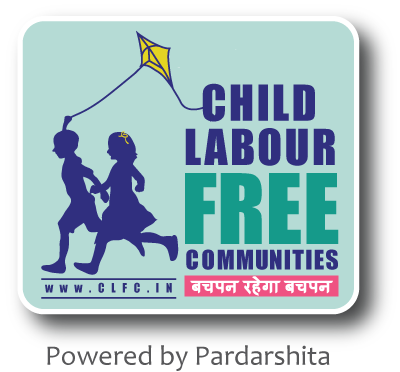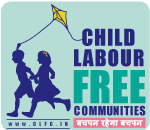Pardarshita is part of a coalition of stakeholders working to combat human trafficking, called Child Labour Free Communities

Rescue and Rehabilitations of Trafficked victims
Pardarshita has rescued 233 trafficked children and guided them through a complete rehabilitation process. This includes psychosocial counselling, health check-ups, access to compensation and government schemes, legal aid, and recovery of unpaid wages. With the support of our network partners, we ensure continuous follow-up home visits so that children remain safe, protected, and on the path to a dignified future
Rehabilitation and Support for Survivors in Delhi
In Delhi, Pardarshita provides rehabilitation support to survivors of rape and trafficking, many of whom have been pushed into sex work. Our support includes legal aid, counselling, access to compensation, and protection services. These efforts are not only about addressing immediate needs but also about helping survivors live with dignity, safety, and justice.

Prevention Programmes in Source Areas
Entrepreneurship for Freedom
In coordination with the local CLFC network in Bihar, Pardarshita identifies and supports families most vulnerable to trafficking. Many of these families are headed by widows or single women who face acute economic insecurity. We provide them with assistance to start small, sustainable livelihood activities such as running general stores, goat rearing, vegetable cultivation on small plots of land, and tailoring or stitching work. These initiatives not only strengthen household income but also reduce the risk of children being pushed into labour or exploitation, creating a safer and more resilient environment for the entire family.
Support goes beyond providing start-up capital. Families are also linked with women’s groups in the community and connected to relevant government schemes, ensuring long-term sustainability. Each family makes a clear commitment to withdraw their children from labour and ensure school enrolment, with a strong emphasis on girls’ education.

With support for vegetable farming, Marasiya Devi now earns a livelihood and ensures her children go to school
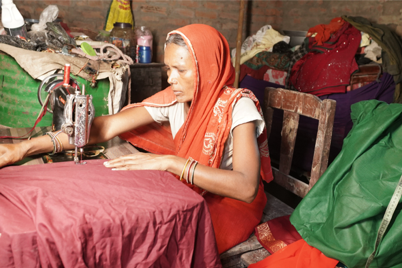
A sewing machine gave Laxmia Devi the means to earn and support her childwith special needs
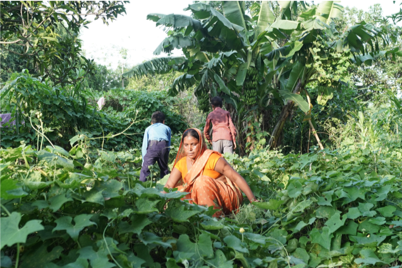
Saroj Devi earns through farming and supports her children’s education
We have already seen encouraging results, with women taking steps to withdraw their children from child labour and ensuring their enrolment in school. These actions safeguard children’s rights while inspiring other families to follow, creating a ripple effect that strengthens the community’s commitment to education.
Youth Action for Child Protection
Pardarshita has helped form 22 youth groups in vulnerable areas and connected them with local self-governance bodies (Panchayats). These youth groups play an active role in preventing trafficking by monitoring children who may be at risk of being trafficked or migrating unsafely with their families, and by helping communities access existing government schemes and services.
Regular meetings are held with the youth groups to build their capacity and sustain their engagement. Periodic interfaces between youth groups and Panchayat representatives are also organised, creating space for young people to raise local issues on trafficking and child protection, and to work together on practical solutions.
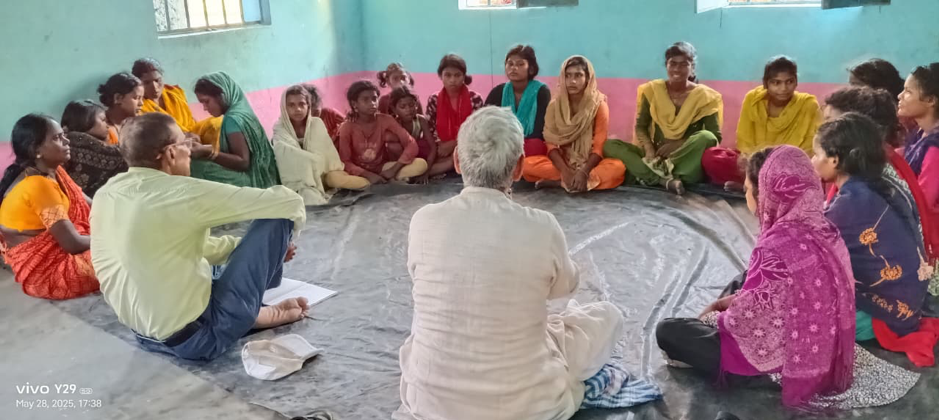
Education as Prevention
Data shows that children who have never been to school or who have dropped out are at greater risk of trafficking. To address this, Pardarshita prioritises the identification and tracking of all out-of-school children, whether never enrolled or dropouts, and works to mainstream them into education.In classrooms, children often face multiple barriers:social exclusion, caste-based and gender biases, and language gaps.

Local children speak Bhojpuri, Magahi, Maithili (Bihar) while textbooks and teaching are in Hindi, creating difficulties in learning. Girls, Dalit children, and children from minority communities often experience neglect or discrimination, which discourages their participation. To overcome these challenges, Pardarshita has developed resource materials for teachers and students to support smoother language transitions and to promote inclusive, bias-free teaching and learning.
Alongside this, regular awareness sessions are conducted in schools on the risks of trafficking, while School Management Committees (SMCs) are oriented on their role in preventing child trafficking, child marriage, and sexual abuse. This ensures that schools not only enrol children but also provide a safe, inclusive, and supportive environment where every child, especially the most vulnerable, can learn and thrive.
Safe Migration Programme
Pardarshita, in coordination with CLFC partners SAVERA and iConcern, is addressing the challenges faced by migrant workers in Delhi and Rajasthan, with a strong focus on preventing unsafe migration and trafficking. The initiative works to identify vulnerable migrant families, raise awareness on safe migration practices, and connect workers to government entitlements and social protection schemes. Special attention is given to children and women

within migrant households, who are often at higher risk of exploitation, abuse, and trafficking. By building community awareness, engaging local governance structures, and strengthening safety nets, the partnership aims to ensure that migration becomes a choice rooted in dignity, safety, and rights, rather than desperation.

